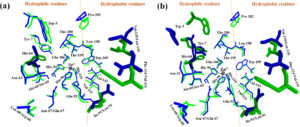INSPIRATION
The implementation of IIoT needs a fast, secure, and continuous connectivity between the different devices in the manufacturing system. The increase in the number of connected devices and the compounding of data creation and utilization constantly intensifies the demand for bandwidth.
In this situation, the latest generation of network technology,5G (mmWave) satisfies the need for high speed, reliable and secure connectivity. The 5G network’s high capacity, wireless flexibility, and low-latency performance enable companies to set up smart factories that greatly rely on sensor technology.
This manufacturing trend features connected tools, utilizing data to guide the tasks of the workforce.
Celona (2019, Cupertino, USA) is a US-based startup that develops an end-to-end 5G LAN solution that meets the connectivity needs of AI, automation, and edge computing applications. The Celona Platform features the Celona Assistant using AI to recommend designs for 5G LAN dimensioning depending on the capacity requirements and changing device densities. The startup’s Assistant module also monitors the
network to ensure optimal performance. The Celona Orchestrator is another feature of the platform that performs SIM provisioning and device access control. All these features help devices in the manufacturing unit like autonomous vehicles and robots have reliable and latency connectivity irrespective
of the number of connected devices.
Qucell (2017, Gyeonggi, South Korea) is a South Korean startup developing devices that help to set up private 5G networks in various scenarios like smart factories, buildings etc.The Qucell Indoor mmWave module supports mmWave and delivers high-performance indoor wireless service enabling low-latency and high bandwidth data transfer. This expedites manufacturing technologies in smart factories demanding real-time computing. HeMS is another offering from Qucell which is a fully automated management system for the fast roll-out and easy self-configuration of smart cell networks.
HeMs also has an easy and flexible interface for monitoring and management of smart cells. The Qucell solution also reduces capital expenditure with better coverage avoiding the need for extra cells.




